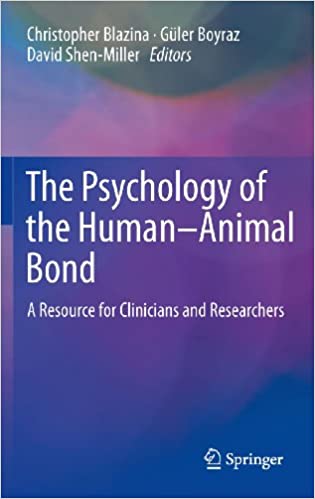You image needs to be Square!
Please crop your image below, then save using the green button, or cancel using the red X


There have been dramatic increases in the financial, emotional, and psychological investment in pets over the past four decades. The increasing importance of animal companions in people’s lives has resulted in growing emphasis on the human-animal bond within academic literature. This book introduces practicing and emerging professionals to vital subject matter concerning this growing specialty area by providing an essential framework and information through which to consider the unique contextual backdrop of the human-animal bond. Such contexts include a wide array of themes including: issues of attachment and loss, success and frustration with making and sustaining connections, world views regarding animal ethics, familial history of neglect or abuse, and cultural dynamics that speak to the order of things between mankind and nature. Adopting a contextual stance will aid mental health professionals in appreciating why and how this connection has become a significant part of everyday life for many. As with any other important clinical dynamic, training and preparation are needed to gain competence for professional practice and research. To this end, an ensemble of international experts across the fields of psychology and mental health explore topics that will help both new and established clinicians increase and understanding of the various ways the human-animal bond manifests itself. Perspectives from beyond the scope of psychology and mental health such as anthropology, philosophy, literature, religion, and history are included to provide a sampling of the significant contexts in which the human-animal bond is established. What brings these divergent topics together in a meaningful way is their relevance and centrality to the contextual bonds that underlie the human-animal connection. This text will be a valuable resource that provides opportunities to deepen one’s expertise in understanding the psychology of the human-animal bond.